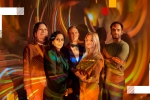An innovative way of tackling extreme poverty
100WEEKS gives donors the opportunity to help women in developing countries directly.
The eradication of extreme poverty is high on the UN's list of sustainable development objectives. However, according to Gitte Buch of 100WEEKS, extreme poverty will only be eradicated if the aid sector comes up with innovative solutions.
100WEEKS adopts a disruptive approach to innovation by using an ICT and data-based business model of micro-giving to help women living in extreme poverty. This model can also be quickly and easily upscaled.


Visible result
When Gitte Buch conducted research into the role of emotions in people's giving behaviour, a frequent reaction of respondents was that although they did want to give, they weren't seeing any results. According to Buch, "A non-transparent result or reporting results with no evidence doesn't build trust.
The debate about money getting into the wrong hands, for example, doesn't help either. At 100WEEKS, we make giving and the result of giving personal and visible. Donors in the Netherlands use the online platform of 100WEEKS to donate mobile money directly to a group of selected women in a developing country who can then decide for themselves how to spend the money."
Mobile money
When it became possible to send money by mobile phone, Jeroen de Lange and Gitte Buch saw an opportunity to modernise the charity sector and so they set up 100WEEKS. Gitte Buch continues, "Thanks to the rapid advance of mobile telephony, including in Africa, there is now a way of distributing small sums of money quickly on a large scale using mobile money.
That's a real revolution in the charity sector because you can now send people money wherever they live at minimal cost and you know exactly who you're sending the money to."


Transition in charity sector
"Existing charities are also involved in innovation but have the disadvantage of not being so flexible and having high overheads", explains Gitte Buch. "100WEEKS aims to make a major impact, not to create a large organisation.
As a new, small and agile organisation, we can actually start with a blank slate and therefore provide the innovation that the sector needs.
Moreover, our ICT-based business model of giving money without conditions can easily be duplicated. We have started with a pilot in Rwanda but will be expanding our activities to other countries in future years. We are currently looking for partners to help 100WEEKS upscale."
First pilot completes one hundred weeks
The first pilot group in Rwanda has now completed its first hundred weeks. "I was recently in Rwanda", says Gitte Buch, "and one of the women told me that she now felt part of the community again because her children were going to school and they could afford better clothes. She was no longer ashamed and was able to go to church again.
Another woman, Claudine, told me that people's intellectual abilities are 'locked down' if each day is a struggle to survive. This is a well-known phenomenon that disappears as soon as people can provide for their basic needs. They can then think more clearly, become more creative and start making plans."


Entrepreneurship and coaching
The women decide for themselves what to spend the donated money on. "They are in the best position to know what is good for them. Because the sums involved are small, they also have to think more carefully about what to spend the money on. It appears that the women first spend the money on basic requirements, such as food and medicines.
They next pay their debts, send the children to school and fix up their homes. We then see that the women start saving and use the money saved, for example, to buy cattle, land or a sewing machine so they can start a business.
This enables them to earn money, even after the hundred-week period. The women keep a housekeeping book and are given financial coaching. At this stage, we also see women forming groups and exchanging tips."
Women take long-term decisions
Caritas selects women for 100WEEKS who have an idea or plan and actively want to start work on it. "We only work with women because experience has shown that they take more long-term decisions, whereas that is not always the case with men", Gitta Buch explains. "Women spend the money on their family and household. Men do get involved and, for example, are present when the programme is being explained, but it's the women who manage the money."


From micro-giving to microcredit
After these hundred weeks, the process of micro-giving can be followed up by a microcredit. Gitte Buch continues, "If you lent money from the outset instead of giving, the women would be building up debt while they were still meeting their primary necessities of life. This expenditure does not come back directly in the form of more income which they can use to pay off their debts. It is only when they have built up a foundation after one hundred weeks that a number of women are ready to take on a microcredit.
The partners of 100WEEKS are experienced professionals, such as development economists, advertising strategists and social entrepreneurs. Would you like to be a 100WEEKS partner as well? If so, send an e-mail to Gitte@100weeks.org
How does it work?
100WEEKS automatically forwards a donor's money to our telecom partner Tigo Cash. Gitte Buch explains, "Every week, the women in our programme are given a code which they can use to collect eight euros in cash from a local Tigo Cash agent. The process is therefore almost direct and no overheads are incurred. Because the amounts involved are small, the system is also less susceptible to fraud as other people are less likely to interfere with it."
The women are then called up and asked questions developed by 100WEEKS with input from the World Bank and the University of Amsterdam VU. Gitte Buch goes on, "This information is stored and we send the data back to the donors. In this way, they can monitor what is happening to their money for one hundred weeks.
Apart from donors, we also want to make the collected data available to others, including students, journalists and researchers, on a platform. But other organisations, such as UNICEF or the World Food Programme, could also use our data. In future, we intend to create a social community in which everyone involved can contact each other and share knowledge and experience."
100WEEKS is investigating the use of the model of donating via mobile money outside the African continent. "We are currently conducting a pilot with a number of refugees in Jordan," says Gitte Buch. "They receive money for two years to give them purchasing power and allow their children to go to school. This provides social acceptance for the refugees and prevents them from sinking into abject poverty. They will be in a better starting position when they return to Syria and other countries.
Jeroen de Lange (founder of 100WEEKS)
Jeroen de Lange lived and worked in Africa for many years. His employers included the Dutch Embassy and the World Bank. On his return to the Netherlands, he was the international cooperation spokesperson for the Labour Party (PvdA) in the Dutch Parliament. He is currently associated with THNK School of Creative Leadership and is senior consultant at the World Bank.
Gitte Buch (founder of 100WEEKS)
Gitte Buch works at the interface between communication, marketing and fundraising. After holding a variety of positions in business communications, she lived for a number of years in Tanzania. Over the past fifteen years, she has worked in development organisations such as War Child. In order to give children in disadvantaged areas a better life, Gitte Buch arranged for partnerships to be concluded between UNICEF and various large companies in Vietnam.
Winner of Social Impact Lab
Last year, 100WEEKS was one of the winners in PwC’s Social Impact Lab, an annual initiative for giving social enterprises a kick-start and providing support. Over the next two years, 100WEEKS can make use of PwC services and will receive a loan of 50,000 euros. Social enterprises can register for the 2017 challenge from 2 May onwards.


Marinus Wisselink (company secretary at Tata Steel Nederland) is a member of the 100WEEKS Supervisory Board
The 100WEEKS Supervisory Board ensures that the management board actually gives substance to the objectives. If the organisation is operating as it should, 100WEEKS can fulfil its promise of direct giving to both the donors and the receivers of the money. In the past, Marinus Wisselink frequently travelled through Africa and saw that traditional development aid was outmoded. He has also invested in social impact business ventures himself. ‘Donating a lot of money and saying as an outsider how things should be done, simply does not work’, says Wisselink. ‘What does work, however, is invoking the personal responsibility of people. That is what 100WEEKS does. The combination of personal responsibility, smart use of IT and a lean organisation means that the pioneering business model has impact and can be upscaled rapidly.’

















